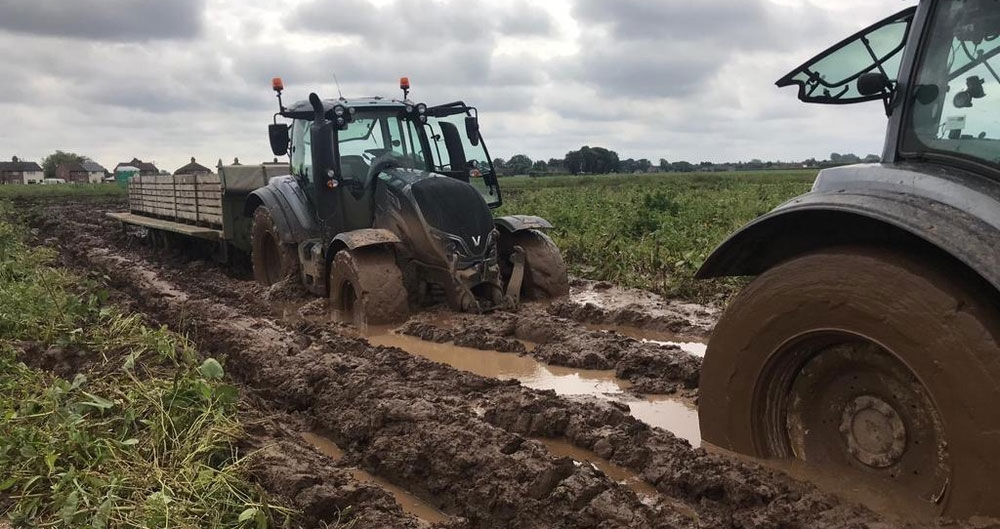Farmers, particularly across the East Midlands and North East of England, are reporting the worst rainfall in living memory, which has left prime farmland badly affected, and thousands of acres under water.
The Met Office says the UK received 109% (138.8 mm) of its average rainfall in October.
The prolonged wet weather has impacted many farmers and growers who are unable to finish harvesting crops, such as maize and potatoes, and expect a severe delay in drilling and sowing winter cereals. Sugar beet farmers are unable to get machinery on to the wet ground to lift sugar beet while livestock farmers are being forced to bring in livestock earlier than normal, which means higher costs on farm for feed and bedding.

NFU President Minette Batters said:
“The rainfall that some parts of the country have been experiencing over the past few months underlines the vulnerability of farming businesses, the fragility of returns to farmers, their exposure to volatility - ultimately resulting in an impact on their bottom line. It’s why the next government and its agencies need to take water-related issues seriously. Some of our most productive and highest value agricultural land is vulnerable to flooding and deserves to be protected."
“Any future domestic agricultural policy must ensure there are measures in place for farm businesses to manage volatility, particularly in the face of increasingly unpredictable weather.
“We also want to see adequate funding available to enable us to have the right resources to take on the enormous challenge and opportunities of future UK water management.
“The UK has £20bn of flood defence assets yet too little is being spent on upkeep – this spending must be increased.
“We’re starting to see breaches of flood embankments, just like the recent incident at Wainfleet in Lincolnshire. This needs to be looked at urgently.
“We also need to take full advantage of measures to maintain the conveyance and capacity of our rivers while at the same time seeking a more active role for some farms to trap, store and slow water. Farmers providing flood management services should be properly rewarded where they are a cost-efficient solution.
“The NFU will work with any future government to ensure it takes all the steps necessary to protect productive farmland so farmers can continue to produce a supply of safe, traceable and affordable food for the nation and protect and enhance our rural landscapes.”
1
NFU key policy asks on flooding include:
- More long-term planning to recognise the increased frequency of extreme weather events using local farmer and stakeholder knowledge.
- Government must recognise the importance and value of productive farmland considering wider benefits such as protecting and enhancing the environment and protecting infrastructure.
- Flooding and water management in river and coastal areas must be properly funded to protect urban and rural businesses, infrastructure and communities. Government spending must be transparent, and the artificial distinction between capital and maintenance expenditure removed.
See also: Win for NFU as government makes funding available for flood-hit farmers
NFU members: Here's how you can get involved
The NFU's Member Toolkit has questions you can ask candidates, a guide to staying within election rules, a template email/letter to invite your candidate on farm, and much more.
Download it today - and visit the NFUonline general election hub for more information.

